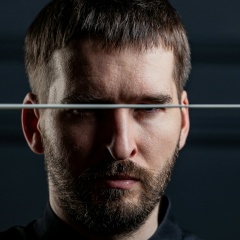На «Фонтанке» история о том, как 20-летнего десантника, погибшего на Украине, хоронит его отец — майор из этой же части. Говорит, сын рвался стать героем — как отец. И получается, говорит — я сам его и убил.
Если бы молодого десантника и его отца-майора не было, эту историю стоило бы выдумать — настолько она укладывается в философию войны и мира Милорада Павича. Посмотрите, кого сейчас хоронят. С одной стороны, есть поколение 76-82, последний советский беби-бум, на чьих глазах рухнула вместе с союзом вся жизнь их отцов, оставшихся у разбитого корыта. Повзрослев, эти дети ходят сами по себе, не говорят о политике и стараются сделать мир лучше. Дети проигравших в войне. С другой стороны, есть поколение-1993, первые дети «Новой России», чьи отцы одолели гидру коммунизма, победили СССР. В тени своих героических отцов с упоением слушают эти дети военные былины о том, как был построен их славный новый мир. Дети победителей, опекаемые и оберегаемые, мечтающие вырваться из-под крыла. И вот именно сейчас они доросли до нужного возраста: расправить плечи, снять со стены отцовскую шашку, выйти за порог и — показать всем, чего они на самом деле стоят. А по ту сторону их уже заждались дети побеждённых, в твёрдом намерении отыграться разом и за себя, и за унижение отцов.
Незачем обсуждать, кто прав и кто виноват, и почему война началась именно сейчас: она не могла не начаться — так устроен мир. Война была неизбежна. Если читали Павича, то вы знаете, кого из них любят и мать, и жёна, и дочь, а кому этой любви не достаётся, и вы знаете, кто в конечном счёте проиграет, а кто победит. Более того, у них нет ни единого шанса.
Если бы молодого десантника и его отца-майора не было, эту историю стоило бы выдумать — настолько она укладывается в философию войны и мира Милорада Павича. Посмотрите, кого сейчас хоронят. С одной стороны, есть поколение 76-82, последний советский беби-бум, на чьих глазах рухнула вместе с союзом вся жизнь их отцов, оставшихся у разбитого корыта. Повзрослев, эти дети ходят сами по себе, не говорят о политике и стараются сделать мир лучше. Дети проигравших в войне. С другой стороны, есть поколение-1993, первые дети «Новой России», чьи отцы одолели гидру коммунизма, победили СССР. В тени своих героических отцов с упоением слушают эти дети военные былины о том, как был построен их славный новый мир. Дети победителей, опекаемые и оберегаемые, мечтающие вырваться из-под крыла. И вот именно сейчас они доросли до нужного возраста: расправить плечи, снять со стены отцовскую шашку, выйти за порог и — показать всем, чего они на самом деле стоят. А по ту сторону их уже заждались дети побеждённых, в твёрдом намерении отыграться разом и за себя, и за унижение отцов.
Незачем обсуждать, кто прав и кто виноват, и почему война началась именно сейчас: она не могла не начаться — так устроен мир. Война была неизбежна. Если читали Павича, то вы знаете, кого из них любят и мать, и жёна, и дочь, а кому этой любви не достаётся, и вы знаете, кто в конечном счёте проиграет, а кто победит. Более того, у них нет ни единого шанса.
At Fontanka, a story about how a 20-year-old paratrooper who died in Ukraine is buried by his father, a major from the same unit. He says his son was eager to become a hero - like a father. And it turns out, he says - I killed him myself.
If the young paratrooper and his father-major were not there, this story would have been worth inventing - so much it fits into the philosophy of war and peace of Milorad Pavic. Look who is being buried now. On the one hand, there is the 76-82 generation, the last Soviet baby-boom, in whose eyes the whole life of their fathers, who were left at the trough, collapsed along with the union. Growing up, these children walk by themselves, don't talk about politics and try to make the world a better place. Children of the losers in the war. On the other hand, there is the 1993 generation, the first children of “New Russia”, whose fathers conquered the hydra of communism, defeated the USSR. In the shadow of their heroic fathers, these children listen to military epics with rapture about how their glorious new world was built. Children of the winners, taken care of and guarded, dreaming to escape from under the wing. And right now they have grown to the right age: to straighten their shoulders, take off their father's saber from the wall, go beyond the threshold and show everyone what they really are. And on the other side of them, the children of the vanquished were already tired of waiting, in the firm intention to take revenge at once both for themselves and for the humiliation of their fathers.
There is no need to discuss who is right and who is wrong, and why the war began right now: it could not but start - this is how the world works. The war was inevitable. If you have read Pavich, then you know which of them is loved by both mother and wife and daughter, and who does not get this love, and you know who will ultimately lose and who will win. Moreover, they have no chance.
If the young paratrooper and his father-major were not there, this story would have been worth inventing - so much it fits into the philosophy of war and peace of Milorad Pavic. Look who is being buried now. On the one hand, there is the 76-82 generation, the last Soviet baby-boom, in whose eyes the whole life of their fathers, who were left at the trough, collapsed along with the union. Growing up, these children walk by themselves, don't talk about politics and try to make the world a better place. Children of the losers in the war. On the other hand, there is the 1993 generation, the first children of “New Russia”, whose fathers conquered the hydra of communism, defeated the USSR. In the shadow of their heroic fathers, these children listen to military epics with rapture about how their glorious new world was built. Children of the winners, taken care of and guarded, dreaming to escape from under the wing. And right now they have grown to the right age: to straighten their shoulders, take off their father's saber from the wall, go beyond the threshold and show everyone what they really are. And on the other side of them, the children of the vanquished were already tired of waiting, in the firm intention to take revenge at once both for themselves and for the humiliation of their fathers.
There is no need to discuss who is right and who is wrong, and why the war began right now: it could not but start - this is how the world works. The war was inevitable. If you have read Pavich, then you know which of them is loved by both mother and wife and daughter, and who does not get this love, and you know who will ultimately lose and who will win. Moreover, they have no chance.
У записи 1 лайков,
0 репостов.
0 репостов.
Эту запись оставил(а) на своей стене Юрий Григорьев






















